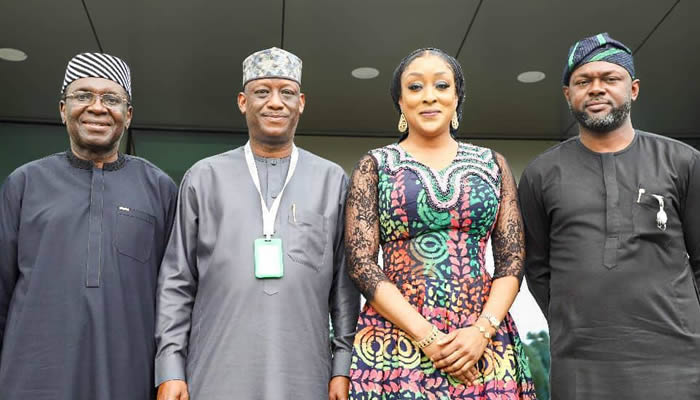The Managing Director of the Niger Delta Power Holding Company Plc, Jennifer Adighije, has stated that the company plans to free and commercialise approximately 200 megawatts of its 2,000 megawatts of stranded electricity by the end of 2025.
This was as the company signed new Power Purchase Agreements with eligible off-takers and traders amid low power off-take by the distribution companies.
Adighije, who disclosed this during a recent visit to the newly established Nigerian Independent System Operator in Abuja, stated that the agreements, currently awaiting regulatory approval, are part of a broader strategy to unlock stranded capacity, improve liquidity, and ensure the commercial sustainability of the government-owned generation company.
The NDPHC boss had, in May, bemoaned the “abysmally low uptake of electricity“ from the electricity market by the electricity distribution companies, saying this had significantly weighed down the company’s operations.
This followed a report by The PUNCH, highlighting how the company’s over 2,000MW of electricity had remained dormant over the years while Nigerians grapple with darkness.
Leading a delegation of senior executives to strengthen collaboration and discuss sector challenges with the NISO leadership, Adighije said, “Now that we’re also improving our mechanical availability, we can significantly improve on the commercialisation of our stranded electricity.
“The Electricity Act has also empowered us to go into successful bilaterals with bankable customers, off-takers, and traders, and I can tell you that we have already signed some PPAs with some traders and some off-takers, which are before the regulator for approval. I’m sure you know that for us to activate those transactions, we will need the regulator’s approval. The process is already ongoing.
“So before the end of the year, we should be able to commercialise about 200MW of our stranded electricity. This is awaiting the approval of the Nigerian Electricity Regulatory Commission as we speak.”
She noted that the company’s recent improvement in plant availability has positioned NDPHC to ramp up supply and meet off-taker demands once regulatory approval is received, adding that the revival of key assets, including the Omotosho and Alaoji power plants, will further enhance generation capacity.
Adighije appealed to NISO to support improved dispatch levels, especially given the company’s absence of a formal PPA with the Nigeria Bulk Electricity Trading Plc, emphasising that without stable offtake arrangements, much of NDPHC’s available capacity will remain underutilised.
She stressed that the company is still heavily owed, only able to earn about 30 per cent of its invoices. Adighije stated that once the NDPHC can unlock some of its ongoing commercial transactions and its cash flow improves, all its obligations to partners and stakeholders would be fully met.
The NDPHC boss noted that part of the reasons for the visit was to extend a handshake to the new management of the new organisation and to express the company’s readiness to work with NISO.
“We’re here to express our readiness to work with you to achieve success in office. We know that the sector is rapidly evolving, driven by the nuances of the passing and implementation of the Electricity Act, of which GenCos have a very pivotal role to play.
“NDPHC, being essentially the backbone of the power sector as the government-owned generation utility company, is actually imperative that we are able to establish and reinforce our working relationship, which is why we are here,” Adighije added.
She emphasised the importance of forging a strong, collaborative relationship under the newly inaugurated NISO leadership and seeks a more nuanced understanding of the bureaucratic limitations that government-owned power firms often encounter.
The NDPHC boss also called attention to the disparities in treatment between public and private generation companies, urging NISO to reflect the company’s vast contributions to Nigeria’s transmission infrastructure when issuing directives or enforcing compliance.
Adighije noted that the implementation of the Electricity Act had further elevated NISO’s role, particularly in shaping the evolving energy market.
She emphasised a need for regulatory fairness and called for greater sensitivity to the procedural bottlenecks public firms face, particularly in procurement and financial approvals.















